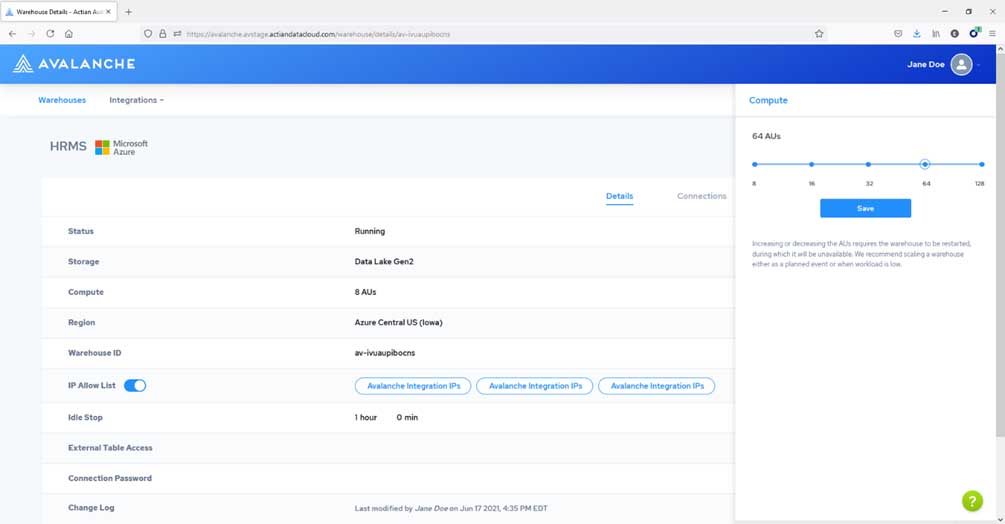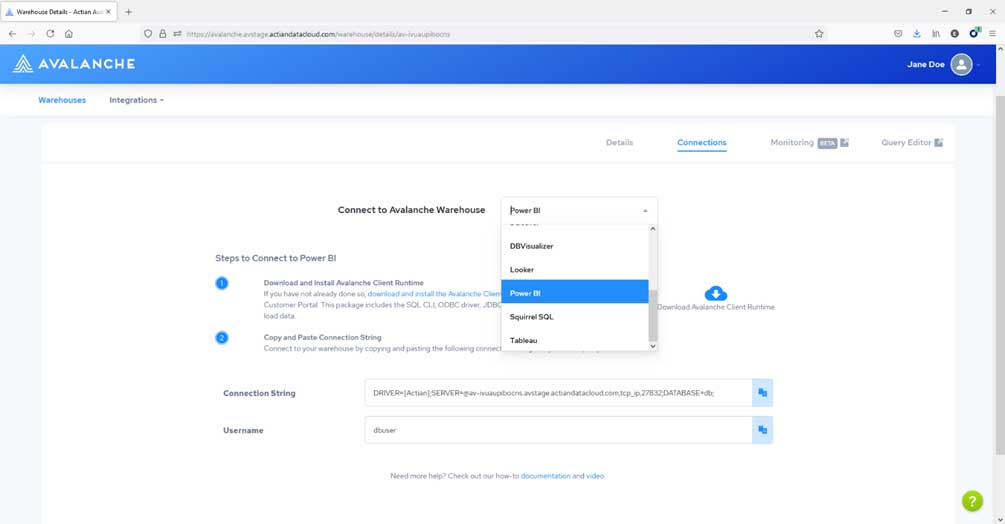Actian Launches Ingres as a Fully-Managed Cloud Service
Actian has released its Ingres transactional database as a fully-managed cloud service. IDN speaks with Actian SVP Emma McGrattan about how the offerings will help long-time Ingres users modernize their technology stack for the cloud era.
by Vance McCarthy
Tags: Actian, cloud, database, hybrid, Ingres, integration,

svp, engineering

"To help Ingres users move to the cloud, we’re giving them all of the tools that they're going to be asked for."
Architecture Summit
 Enterprise-Grade Integration Across Cloud and On-Premise
Enterprise-Grade Integration Across Cloud and On-PremiseActian has released its Ingres transactional database as a fully-managed cloud service.
The offering is part of Actian’s Ingres NeXt initiative, which aims to helps companies update their massive Ingres investments for enterprise modernization – across cloud, mobile and web.
“The Ingres NeXt initiative embraces the fact that they're going to move to the cloud and let's give them all of the tools that they're going to be asked for.” Emma McGrattan, senior vice president of engineering at Actian, told IDN.
With Ingres available as a native cloud-managed service, customers can “seamlessly begin their own journey to the cloud and modernize their existing technology stacks while maintaining the level of reliability and support they’ve come to expect from Ingres,” added Actian CEO Lewis Black in a statement.
To support Ingres on cloud infrastructure, Actian lets customers with development shops “just spin up instances” of Ingres for developers to work on and set up as is – or in more complex cloud-centric configurations. “We have the Docker container [support] and we’ve enabled it through Kubernetes,” McGrattan told IDN.
For another option, Actian has built out its current Avalanche Hybrid Data Platform with seamless support analytics. Actian is delivering cloud-native technologies, an analytics-ready platform and answers to migration and implementation questions that cloud ops teams are likely to ask, she said.
This lets users easily put Ingres right alongside analytics capabilities without the need for gnarly integration or similar tasks. “It's just using kind of infrastructure in place of your data center infrastructure or the native cloud. Containerization and deployment,” she said.
“To help Ingres users move to the cloud, we’re giving them all of the tools that they're going to be asked for,” McGrattan said.
All Ingres customers will have the flexibility of choice, leveraging Actian’s multi-cloud strategy. That's because it delivers the database in a cloud-native format with Docker, Kubernetes, and HELM support and the ability to run on AWS, Azure and Google Cloud Platform.
As a result, getting Ingres ready for the cloud is easy. Customers are “creating a warehouse, populating it, connecting it to other data sources – and then connecting all of it to applications on the other end,” McGrattan said.
“All you've got to do is when you go into create a database, and you say: What cloud platform you want, What region you want it in and What size do you want your deployment to be. Then you just spin it up,” McGrattan said., “And, you're only paying for it as you're using it.”
Features, Benefits of Ingres as a Fully-Managed Cloud Service
Ingres as a cloud service also brings all the elasticity cloud users expect.
“It will automatically shut down if it's inactive for a period. It can scale and spin down your environments. And, users can scale it for a minute, an hour, a day, or for the rest of its life. And then you can scale it back down again when you no longer need that sized environment so that we think is quite attractive to Ingres customers,” McGrattan explained.

Actian also makes the integrations with Ingres for the cloud easy.
“We provide a screen that lists the different ways of connecting to the database. So it might be ODBC, JDBC -- or it could be integration with a specific tool, like Power BI or Tableau. We've got different connection methods, and they're all listed out.
“So, you basically just click on a button and it'll copy that connection string to your clipboard and you paste it in – and just like that, you can connect to your Ingres in the cloud,” she said,

McGrattan said that to make Ingres even more cloud-ready, Actian's direct connection into its Avalanche warehousing technologies provides ways to identify where users want to pull data from and where they want it to land. The Avalanche platform also supports data enrichment and data quality services.
“Avalanche started life as a hybrid cloud data warehouse, and we very quickly saw that there's a place in it for [Ingres] and other Actian technologies,” she said.
The complete Avalanche platform provides security, management, monitoring and patching upgrades.
“Actually, patching and upgrades other good reasons for customers to move to the cloud. What we've seen with some Ingres customers is that they're reticent to move to new releases. If they move to the cloud, then they're always going to be on the latest release of Ingres and it's going to be automatically upgraded by us. That’s the benefit of using Docker and Kubernetes and so on.
We can push out updates and manage them all for them.
In the end, Ingres customers get all of the benefits of a cloud-native technology, along with a version of Ingres built explicitly to run on a cloud platform that supports AWS Azure and Google cloud.
On top of that sits the ability to tie into deep support for analytics. “You've also got this option to either just keep Ingres by itself or connect to Actian’s analytics services. if they're using something like Tableau or Power BI, they could just connect those dashboards to the Avalanche warehouse and it should run the way that it did with those other technologies,” McGrattan said.
Survey: Ingres Customers Ready for Cloud; Just Avoid Bumps on the Way
The Ingres cloud launch comes as Actian released a survey of its customers that found “a significant portion” of Ingres users have a strong desire to move to a public cloud within the next two to three years, McGrattan noted.
“Ingres is just a workhouse for many companies. We have 3000 customers around the world, many in mission-critical deployments. So, it’s no surprise that customers want to keep using Ingres,” she said.
The Actian survey revealed that after many years – even decades - of reliable and orderly use of Ingres, customers are finally ready to look for ways to modernize Ingres with the cloud in mind – so long as it’s not adding any risk.
“Customers are now saying for my next hardware refresh. I don't want to be in a data center. I want to move my Ingres to the cloud. So we wanted to make an easy conversation for the Ingres database administrator to have with their cloud ops dev ops and IT folks," McGrattan told IDN.
Even with the jump in Ingres customers’ interest in cloud, “there's just nobody going to go forklift their entire environment," she added. So, the Ingres updates are designed “to preserve their current software investments while modernizing their applications to harness the power of the cloud."
Aside from Ingres as a cloud service, Actian also updated its 4GL OpenROAD development environment to let companies effortlessly migrate existing application business logic to modern web and mobile user interfaces.
Developers can use HTML5 and JavaScript while encapsulating business logic in an OpenROAD server. The goal is to enable organizations to preserve years of prior application development investment as they take advantage of the contemporary web and mobile user interfaces, McGrattan said.
Actian will also partner with service organizations, including HCL Technologies and Diegesis, to assist customers along their path to adoption.
Related:
- Alluxio Empowers Data Architectures for Cloud-Scale and Multi-Tenant Projects
- Snorkel AI Boosts Success of AI Projects by Reducing Bottlenecks in Training Data
- SingleStoreDB Expands Capabilities for Real-Time Applications and Workloads
- Alteryx Adds AI/ML, Cloud Connectivity and More To Drive Self-Service Analytics
- Data Privacy and Fallacies
All rights reserved © 2025 Enterprise Integration News, Inc.


